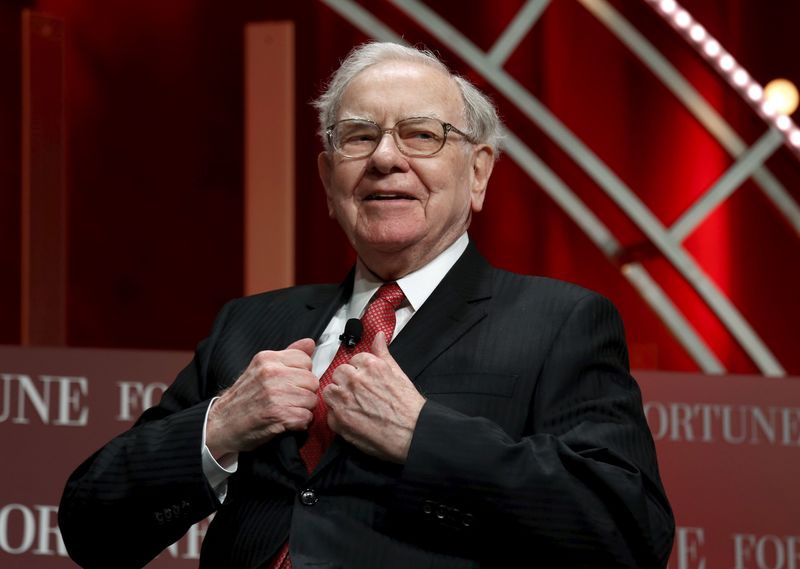By Jonathan Stempel
(Reuters) - Warren Buffett's Berkshire Hathaway Inc (N:BRKa) (N:BRKb) on Friday confirmed that its first-quarter profit rose 8 percent, while operating results fell short of analyst forecasts as falling oil prices and coal demand hurt its BNSF railroad unit.
The Omaha, Nebraska-based conglomerate, which has close to 90 operating units, also said its book value per share, measuring assets minus liabilities and Buffett's preferred gauge of growth, rose 1.2 percent from year end.
Net income rose to $5.59 billion (4 billion pounds), or $3,401 per Class A share, from $5.16 billion, or $3,143 per share, a year earlier.
Operating profit fell 12 percent to $3.74 billion, or $2,274 per Class A share, from $4.24 billion, or $2,583 per share.
Analysts on average had expected operating profit of about $2,759 per share, according to Thomson Reuters I/B/E/S, before Berkshire released preliminary results at its annual meeting in Omaha on April 30.
Results suffered as falling oil prices and lower demand for coal contributed to a 25 percent drop in profit at BNSF to $784 million, as overall volume fell 5.5 percent.
Freight revenue from industrial products such as petroleum fell 18 percent, and from coal tumbled 39 percent.
Railroad carloadings industry-wide fell "significantly" in the first quarter, and "almost certainly will continue to be down the balance of the year," Buffett said at the meeting.
Buffett also said insurance results suffered from payouts related to Texas hailstorms. Insurance underwriting profit fell 56 percent to $213 million despite improvement at the Geico auto insurer, which raised premiums to offset rising accident claims.
"Float," which is the amount of insurance premiums collected before claims are paid and helps fund Berkshire's expansion, grew to about $89 billion from $87.7 billion in the quarter.
Book value per share rose to $157,369 per Class A share as of March 31 from $155,501 three months earlier, while revenue rose 8 percent from a year earlier to $52.4 billion.
Berkshire made two big acquisitions in the quarter.
It acquired airplane parts maker Precision Castparts for about $32.1 billion, and acquired battery maker Duracell from Procter & Gamble Co (N:PG) in exchange for that company's stock. The swap resulted in a $1.9 billion after-tax gain.
Among other businesses, Berkshire Hathaway Energy, a utility unit mostly owned by Berkshire, posted a 5 percent increase in profit to $441 million, as lower energy costs helped boost margins at its Western U.S. electric utility PacifiCorp.
Berkshire also has dozens of smaller units that sell such things as Benjamin Moore paint, Dairy Queen ice cream, Fruit of the Loom underwear, Johns Manville insulation and See's candies.
The company ended the quarter with $58.34 billion of cash, down from $71.73 billion at year end, largely because of Precision Castparts.
It also owns $106.4 billion of stocks such as International Business Machines Corp (N:IBM), which it plans to keep despite sitting on a $1.5 billion unrealized loss as of March 31.
Berkshire owns 26.8 percent of Kraft Heinz Co (O:KHC), and with Brazilian private equity firm 3G Capital has a controlling stake in the food company.
Kraft Heinz on Wednesday posted a larger-than-expected quarterly profit, helped by cost cuts as some shoppers seek out fresher alternatives to its packaged, processed foods.

In Friday trading, Berkshire Class A shares closed up 0.5 percent at $216,999.99, and its Class B shares closed up 0.5 percent at $144.62, according to Reuters data.